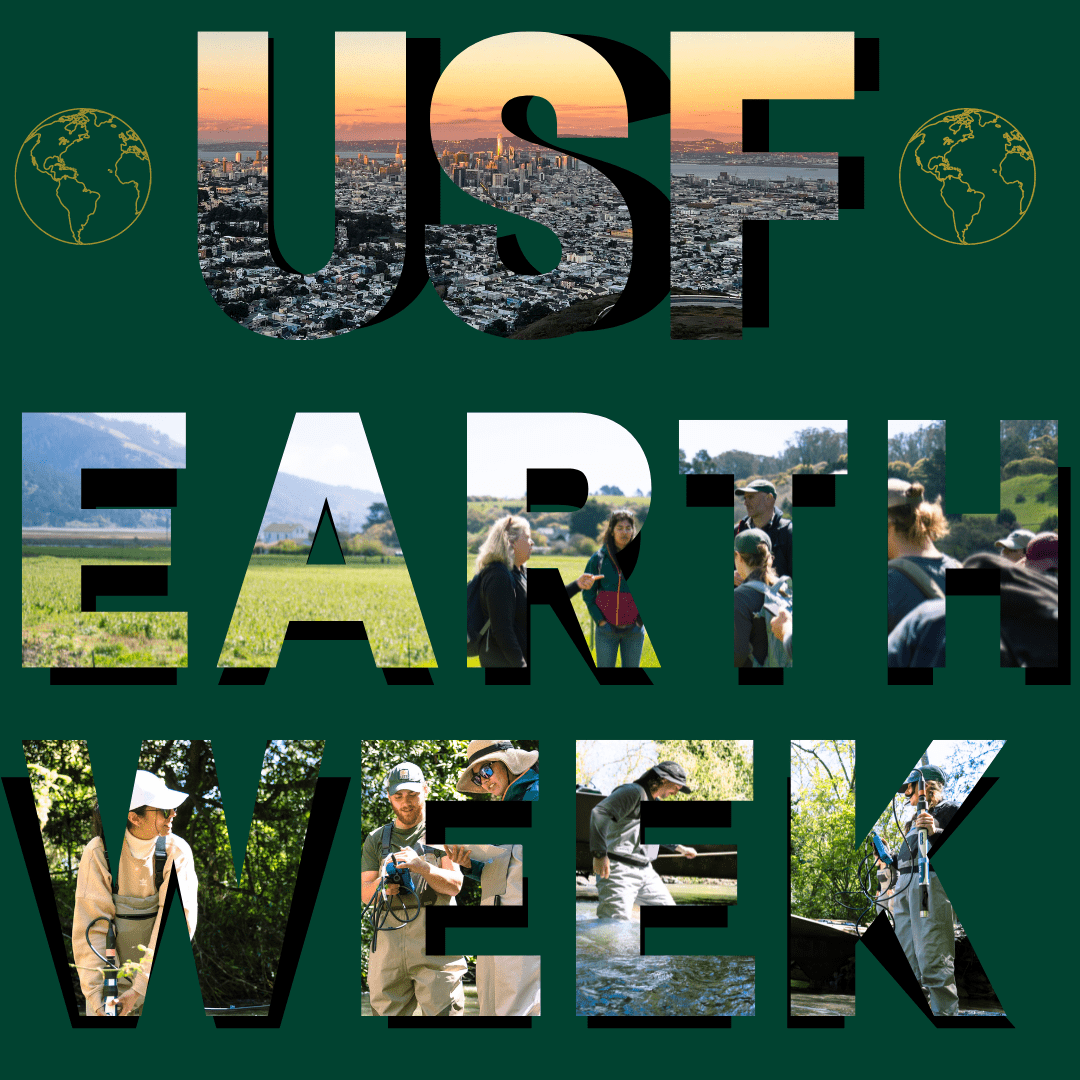This past week MSEM celebrated Earth Week!
Leading up to Earth Day we highlighted important work and environmental topics from people within our program. Our goal is to inspire others to get involved and explore the unique ways we can each come together to help combat climate change. Here’s everything we shared last week in case you missed it!
Monday: Question of the week
We started off the week asking everyone the question: what motivates you to protect our planet? Interests ranged from conservation efforts and environmental justice to wildfire and waste management methods. We continued the week by highlighting some of these key topics!
Tuesday: Waste Management
Students Elijah Ashiagbor, Jeff Beaudoin, and Valery Fala came together to record a podcast called: Transforming Solid Waste Into Energy to Combat Climate Change. This two part series emphasized how California can use waste as an alternative energy source. You can listen to both episodes on our LinkedIn here.
Wednesday: Activism & Environmental Ethics
Activism is considered to be one of the best ways to get corporations and politicians to accept the need for change. Without the push from society and media coverage of climate events then things will not evolve rapidly enough to keep our planet healthy enough to support humanity. Program director and professor, Stephanie Siehr, is a major voice both inside and outside USF making her an inspiration to all.
Thursday: Wildfire Management
Kenneth Rangel, a current MSEM student joined together with classmates to model the effects of the CZU’s lighting complex wildfire along California’s coastline to understand how marine ecosystems could be impacted by coastal fires. Using modeling tools learned in their ArcGIS program, Kenneth and his team found that their project suggested that wildfires can increase turbidity within marine environments by removing vegetation from the landscape, thus increasing erosion which can lead to sediment/ash/debris to be deposited into the watershed, and output into the pacific ocean. This in turn can have significant effects on primary producers within marine ecosystems given the sediment can reduce light availability. This type of work can be hugely important for environmental management practices.
Friday: Health & Hazards
The Environmental Health and Hazards class is a great introduction to how pollution can impact both the health of the environment and human health. The class collected water samples at Almaden Quicksilver park and worked on exercises with dose/response to better understand how regulatory pollution requirements are formed. Focusing on specific pollutants like mercury coming from the historic mining operations and the associated dangers related to its prevalence and biomagnification potential allowed students to see how the water quality is still being impacted today even after mining operations ceased in 1912!
Saturday: Earth Day!
Students and faculty all celebrated in different ways with some students on a field trip to look at stream restoration projects and others exploring the master’s project further to find mitigation tactics for environmental problems on hand. MSEM honors our planet and works toward a better future for all, each and every day. We hope you can join us in any capacity to help fight the climate battle!






